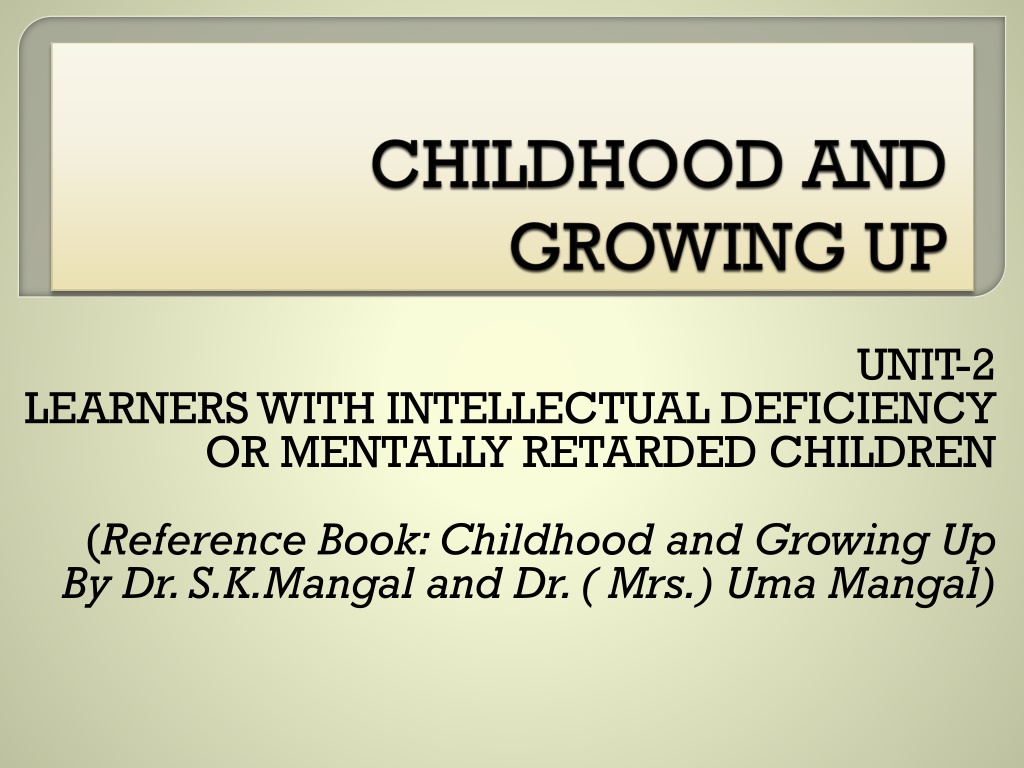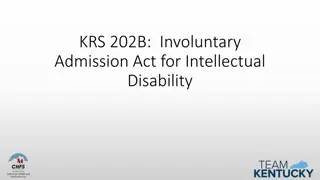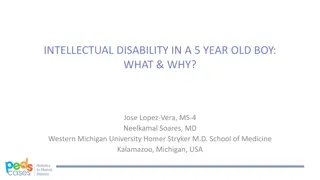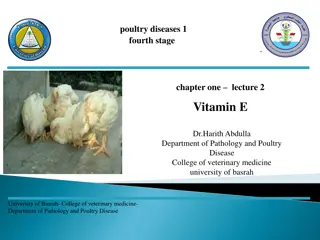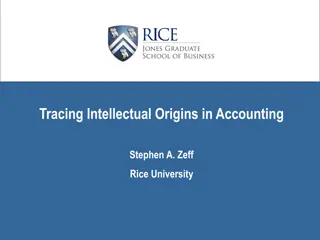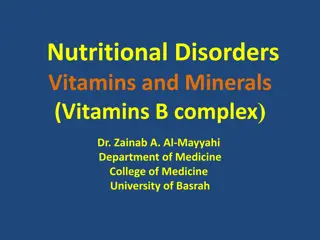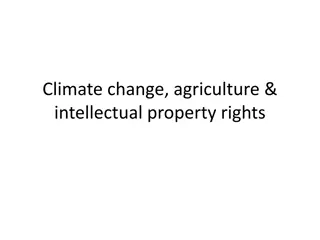Understanding Learners with Intellectual Deficiency
Individuals with intellectual deficiency or mental retardation may exhibit immature behaviors, lack judgment, and show signs of delayed development. They require special care, early diagnosis, parental assistance, and educational support to reach a reasonable degree of educational achievement and social adjustment in the community. The severity of intellectual disability varies, with different levels of intellectual functioning and adaptive behavior. Proper diagnosis and intervention can help these individuals achieve independence in various aspects of life.
Download Presentation

Please find below an Image/Link to download the presentation.
The content on the website is provided AS IS for your information and personal use only. It may not be sold, licensed, or shared on other websites without obtaining consent from the author. Download presentation by click this link. If you encounter any issues during the download, it is possible that the publisher has removed the file from their server.
E N D
Presentation Transcript
UNIT-2 LEARNERS WITH INTELLECTUAL DEFICIENCY OR MENTALLY RETARDED CHILDREN (Reference Book: Childhood and Growing Up By Dr. S.K.Mangal and Dr. ( Mrs.) Uma Mangal)
UNIT-2 LEARNERS DEFICIENY OR MENTALLY RETARDED CHILDREN Lecture-2 WITH INTELLECTUAL PRESENTED BY: Dr. MAHASHEVTA GAUR BRAHMAN COLLEGE OF EDUCATION, ROHTAK
Standford Binet I.Q. Level (52-67) Wechsler Scales i.Q. Level (55-69) In adult life, these individuals attain intellectual levels comparable to that of the average ten years old child. Social adjustment may be compared with that of adolescent. Show signs of delayed development. Exhibit immature behaviours. Have poor control over their impulses.
Lack in Judgment. Fail to anticipate the consequences of their actions. Unpredictable sexual behaviour and adjustment. Generally do not show any organic pathology and require little supervision. Considered to be educable. With early diagnosis, parental assistance, and aid of special classes, they can be expected to reach a reasonable degree of educational achievement and to make an adequate social and economic adjustment in community. Approximately 85% of the retarded belong to this Category.
Standford Binet I.Q. Level (36-51). Wechsler Scales i.Q. Level (40-54) In adult life, these individuals attain intellectual levels comparable to that of the average six years old child. Clumsy Physical Appearance. Suffer from motor incoordination. Dull, affable and vacuous Personality. Regarded as trainable instead of being educable .
Show signs of retardation in almost all areas of development, from early infancy or childhood. Manage to speak but rate of learning is very slow. Unable to do any work that requires initiative, originality, abstract thinking, memory or consistent attention. Cannot be expected to acquire the basic skills of reading and writing.
With early diagnosis, parental help and adequate training and support, most of the moderately retarded can achieve considerable independence in all spheres of life. Require constant supervision and support and need institutionalization depending on their general level of adaptive behaviour. Approximately 10% of the totally mentally retarded children belong to this Category. To be continued in Next Lecture
